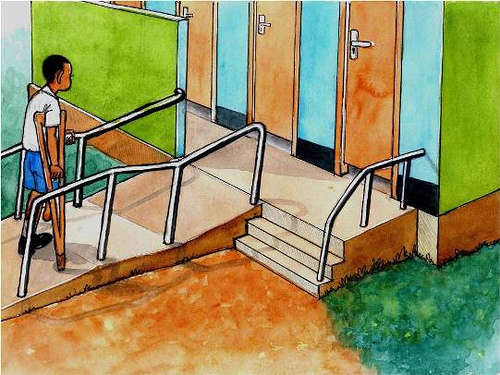
Photo by Audi Nissen on Unsplash
Having to go on disability for any duration of time is daunting, but having to be on long-term disability is even scarier. The upfront cost-of-care is often high, but ongoing and future care may be even harder to budget for.
You may need more care down the road or the cost of services could increase. Figuring out how to prepare is difficult, on top of already dealing with your current situation.
Luckily, there are several things you can do to make this easier on you.
Long-Term Care Insurance
For people who are going to be on disability for an extended period of time, long-term care insurance is an option. The insured party will pay a monthly premium, just like with regular insurance. However, the policy will cover a portion of their long-term care costs.
Sometimes, the policy will cover the total cost of long-term care. A person who has a long-term care policy along with life insurance and a retirement account may feel comfortable that their medical and care expenses will be affordable for the next several years.
It’s important to understand the difference between long-term disability insurance and workers’ compensation, of which your employer might have insurance to cover the costs of. Accidents or injuries that are work-related or happened on work property are covered by workers’ compensation. Personal accidents, like falling down the steps in your home or getting into a car accident, are covered by long-term disability insurance.
Not every company offers long-term disability insurance. You’ll need to speak with the human resources department to obtain the necessary paperwork and to ask any questions you may have. Make sure to save any paperwork you receive regarding the insurance.
If you have to sign a document and send it back, keep a copy for your personal records. Businesses should have a records retention program setup so that important business documents, like your health and insurance information, is retained. However, in the event that they don’t have this safeguard arranged, you’ll definitely want your own system.
Health Savings Accounts
In addition to the coverage you’ll receive from your insurance company, this may be a good time to open a health savings account (HSA). Some employers offer this as part of their benefits package, or you can seek out an HSA on your own. Here are a few things to know about HSAs:
- An HSA is similar to a bank account – you deposit money into it and you control how much you put into the account and how you use it. You own the money and you’re in control of the account.
- You can only use the money in an HSA for medical expenses. As someone who needs long-term medical care, this means that the money in your HSA probably won’t sit there unused for a long time.
- The money you deposit into an HSA is not taxed. This means that you can save more money for your medical expenses by using an HSA because you won’t be paying taxes on it.
To figure out the best course of action, you’ll want to estimate your medical needs and chart how much you’ll spend with a high-deductible insurance plan and an HSA, as well as with a low-deductible insurance plan and no HSA. You can also figure out ways to reduce your premium, such as by getting regular physicals.
Individuals can have an HSA whether or not they’re employed. If you’re unsure of whether you’ll be able to keep your job but you know you have to start saving for your care expenses, consider opening an HSA now so that you have a tax-free savings account started.
Careers for Blind- or Vision-Impaired Workers
Many people who are vision-impaired are still extremely capable workers. However, they often have trouble finding full-time employment. Knowing your rights is a good first step to finding a job. It’s also helpful to know which jobs are most-suited to blind or visually-impaired people.
There are a lot of resources out there to find out the rights for vision-impaired individuals. For example, according to the National Network Disability Law Handbook from the ADA, large-format printed materials must be provided to employees with low vision.
Furthermore, the Equal Employment Opportunity Commission has a FAQ sheet about blindness and vision impairment. The first question-and-answer clarifies what’s considered a disability in a vision-impaired (not blind) individual.
There are numerous jobs that a blind or visually-impaired individual can consider, including:
- Customer service representative
- Executive director
- Guidance counselor
- Massage therapist
- Motivational speaker
- Rehabilitation counselor
- Social worker
- Teacher or college professor
Individuals with visual impairments are more than capable of performing any number of jobs. They simply have different skill sets than other workers. Thanks to advanced tech like magnifying software, screen-readers and Braille displays, it’s possible for employees with visual impairment to find a job they love and do it just as well as any other employee.
Final Thoughts
Knowing you’re going to be on disability for a long time can feel threatening, but once you start budgeting and making a plan, you could feel much more in control of the situation.
Also, it pays to discover what you’re still capable of doing, even if life has changed drastically from before. Know your rights and figure out the financial plan that makes the most sense for you.






Be the first to comment